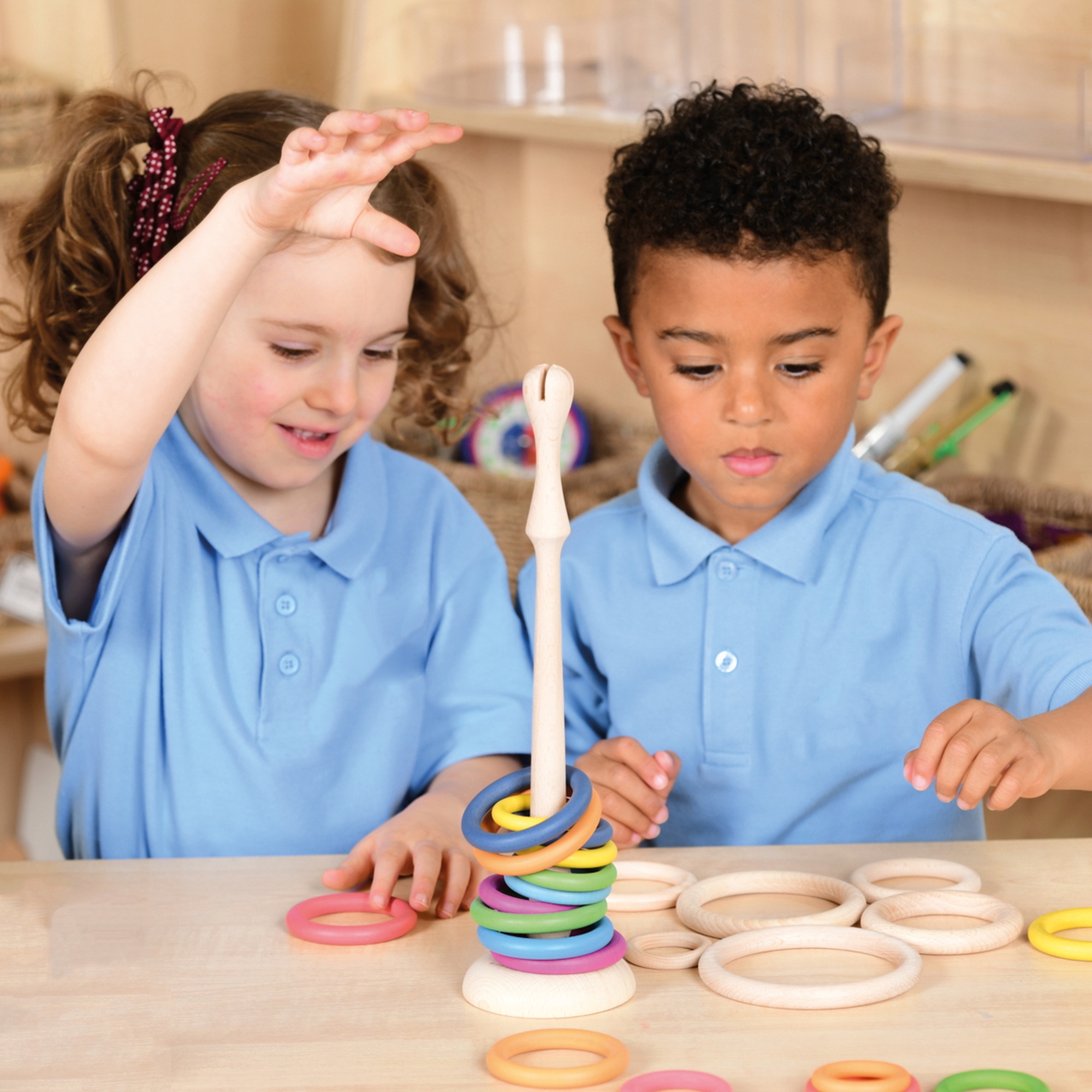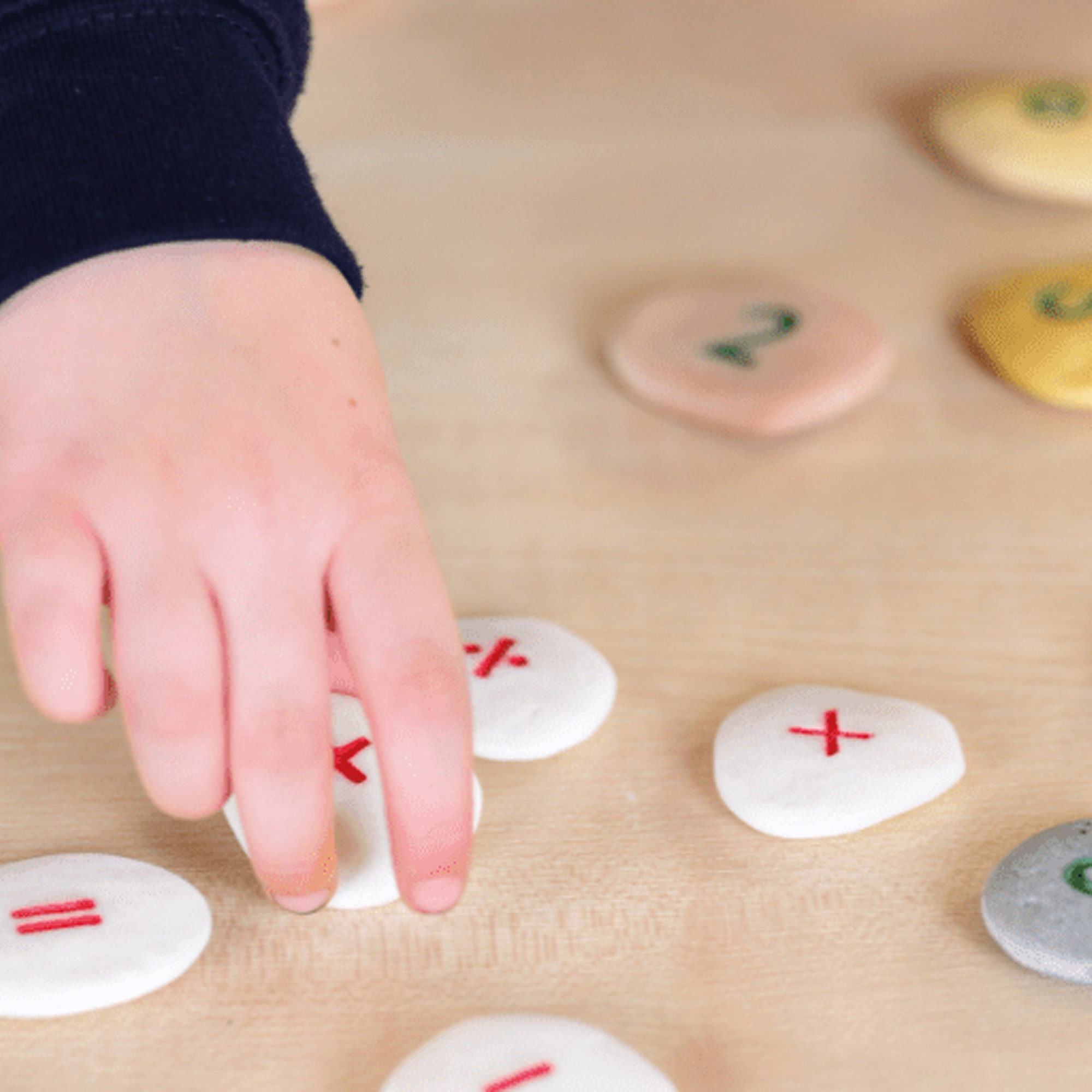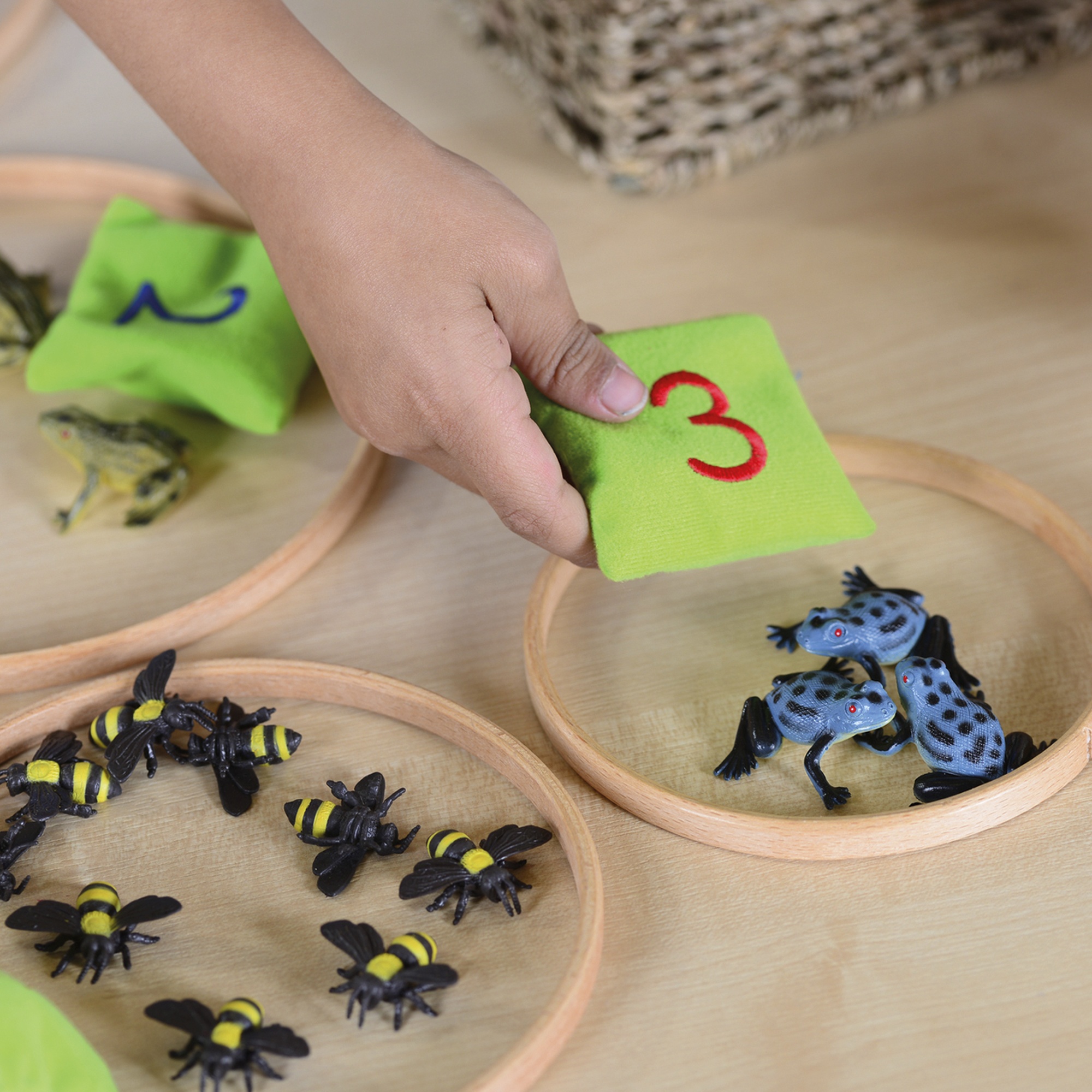Read our latest blog by Jude Twani, who is an Associate Consultant for Early Excellence.
One day I was introduced as an “early years maths expert” and imposter syndrome flooded my system! At school maths was a constant mystery to me. I would have to take home endless work on fractions in the hope that one day I would understand it. My maths teacher told me as I walked out of my O Level maths exam that he had already put me on the list for the resit! (Which I didn’t need to do as I achieved a B!) And in a school inset day on maths I sat and displayed high anxiety, yes, I cried, when I couldn’t understand the problem we were meant to solve. It was that experience that drove me to ensure that no child would ever leave my class feeling like a mathematical failure and eventually led me to writing and delivering training around early years maths so that others could grow in confidence around teaching maths to young children.
Here are just a few of my own ponderings about how we can approach maths in early years:
- Thread mathematical thinking through all areas of provision
- Arrange resources in size order so that they are constantly exposed to comparative language (biggest, smallest, longest, shortest…)
- Use stuck on shadowing on shelves so children match the resource to its’ shadow reinforcing the relationship between a 2D and a 3D shape.
- Where appropriate use numerals to indicate how many resources there are in a pot or tray eg. 4 rolling pins or 6 pencils. This supports one-to-one correspondence and encourages simple calculation eg. if there are only 5 pencils they recognise there is one missing.
- Spot the maths in children’s play
- Observe and interact with children in their play noticing the maths that is taking place; the patterns they create, the way they arrange and sort resources, the language they use, the marks and drawings they make that reveal a mathematical understanding.
- Keep maths real as much as possible
Relate maths to real life experiences so that children gain meaning and purpose:
- Self-registration: children register on a Ten Square or on a bar chart;
- Voting for the book they want at the end of the day;
- Real working clocks at child height;
- Home corner with ‘maths’ resources they may have at home – timer, calendar, measuring jug, bathroom/kitchen scales, measuring tape.
- Never forget the power of a song
- Create a list of songs that are mathematical and teach these throughout the year.
- Sing them regularly as part of daily routines.
- Build on children’s intrinsic motivation around food!
Cooking is always an effective tool for understanding maths so I recommend:
- Cooking as often as possible with children;
- Creating recipe books with them and providing opportunities to cook familiar, simple recipes independently.
- Teach children to use dice and dominoes.
Games are an enjoyable and engaging way to reinforce maths and also support that instant recognition of pattern and number, so think:
- Do your children know how to play dominoes? Has anyone ever taught them?
- Create dice games with your children to help reinforce and teach different concepts such as doubling, counting on, amounts and one-to-one correspondence.
- The adult is critical to the development of mathematical thinking. The words “I wonder…” will create a partnership between the adult and the child as they explore together; I wonder how many…I wonder what would happen if… The adults will be aware of the mathematical vocabulary children will need to learn throughout the year and so will introduce and use these words as a natural part of their interactions.
So those are just a few of my mathematical musings, which I hope you will find helpful.
In the midst of the ever-changing early years landscape, it is easy to lose sight of some of the basic pedagogical principles. It’s essential, therefore, that the whole team have a clear understanding of how young children develop mathematical expertise, especially when choosing, using and evaluating set schemes or programmes – viewing these carefully through an early year’s lens.
Many of the practical examples I have shared highlight the way our learning environments have tremendous potential to be a powerful landscape for children to embed mathematical learning. Used in harmony with whole class and small group activities, we can create rich opportunities that enable young children to see maths all around, develop their confidence and expertise and ultimately, gain a love of all things Maths!
Jude Twani, Early Excellence Associate Consultant
Publications to explore:
- For more about Maths Teaching: Let’s Talk About Maths! by Jude Twani
- For recipe ideas: Inspiring learning through cooking by Suzie Strutt
Find out more

Develop your knowledge around teaching maths in EYFS & KS1 with our range of webinars and online programmes to ensure effective practice and high-quality teaching to enable children to become confident mathematicians.

To help you assess the quality of your Early Years & KS1 Maths Areas, take a look at these free Maths Audit Tools which list a full range of age appropriate resources for EYFS & KS1. Download the audit and take a look at your resources today.

As you review your Maths provision, you might want to add a few more specialist resources that encourage number recognition, sorting and counting as part of playful activity. Discover a range of EYFS & KS1 resources on our online shop.

